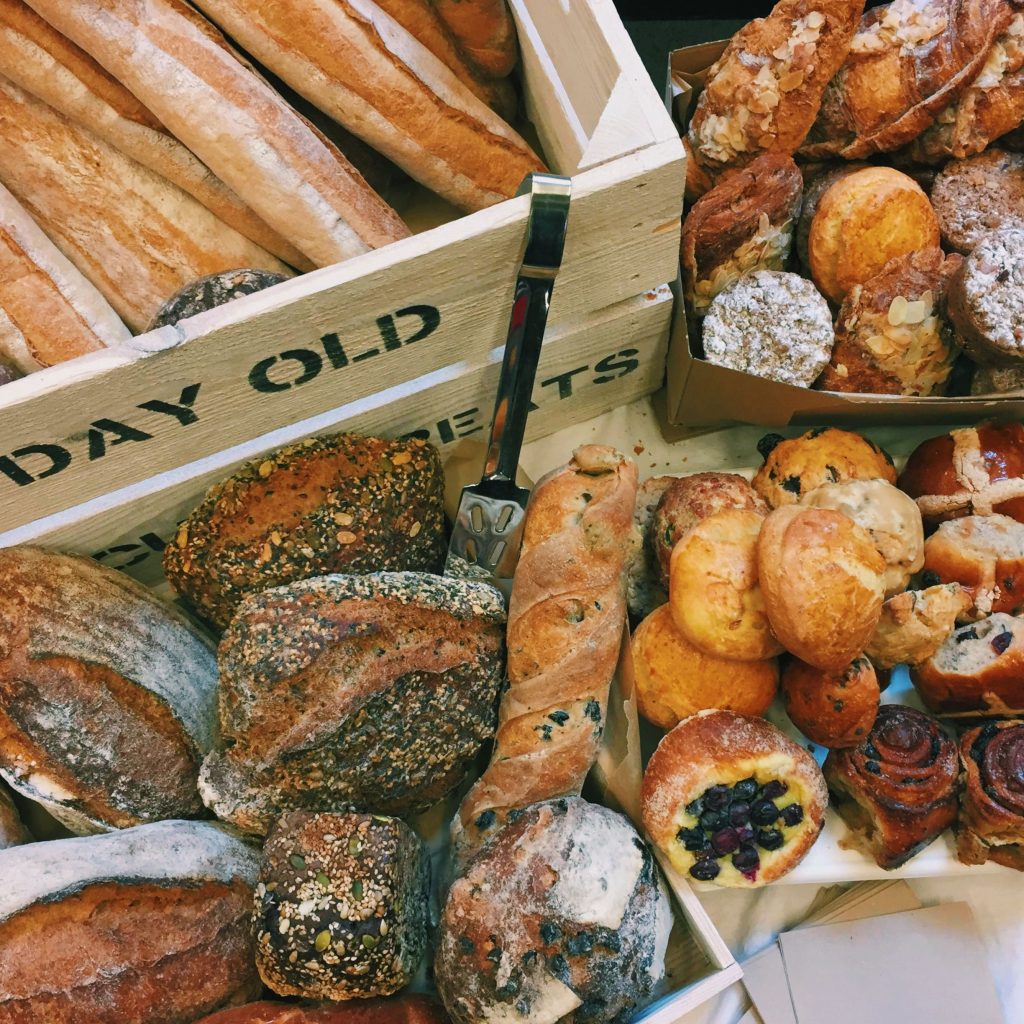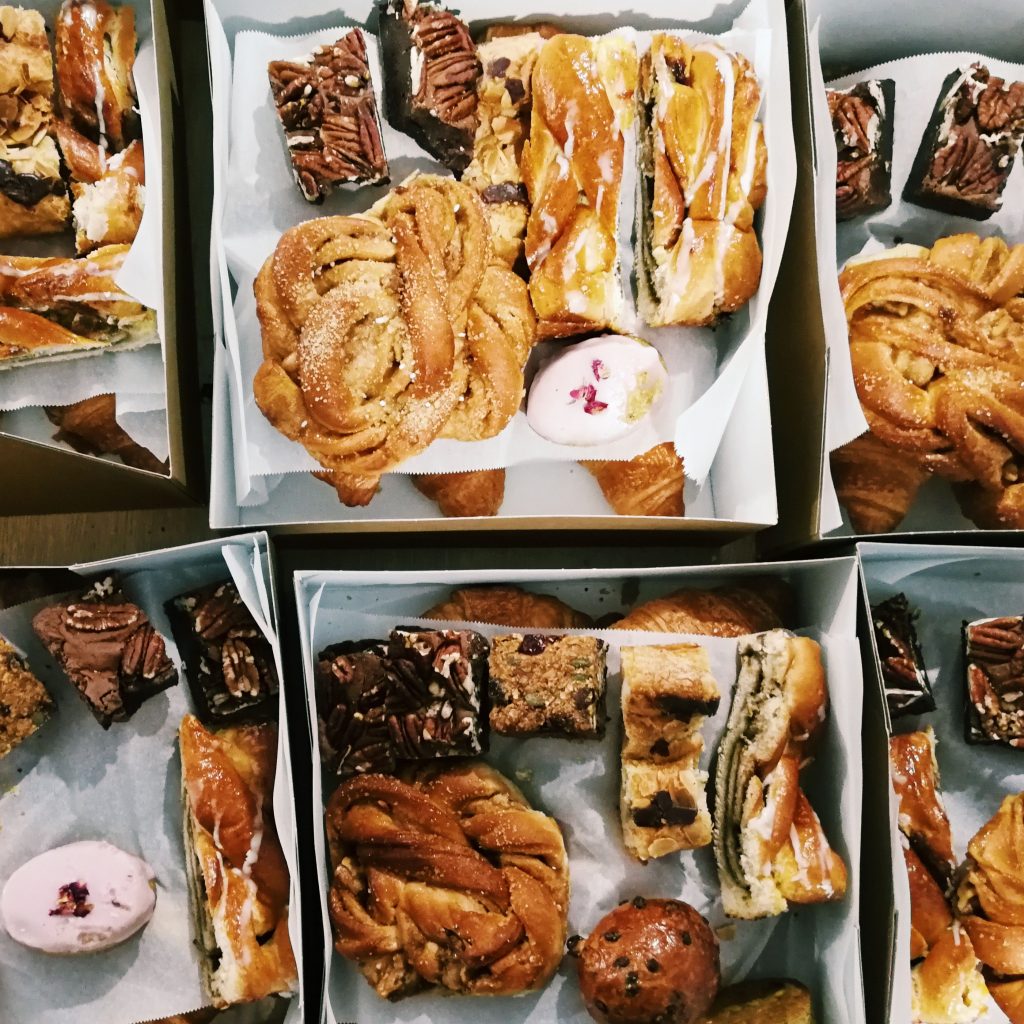These London-based social enterprises set their sights on tackling different issues faced by communities through the art of baking.
Managing Director of Hackney-based bakery, The Dusty Knuckle, Max Tobias, 36, aimed to extend a hand to previous young offenders looking for a second chance.
Tobias, a previous gang conflict mediator, kickstarted the bakery in 2014 with his co-founders Rebecca Oliver, 37, and Daisy Terry, 33.
Tobias said: “We wanted to represent graft and hustle and make something out of nothing.”
Setting up a training and skills programme to help those who looked for a way to kick-start their future, the bakery helped their trainees produce everything from sourdough to cinnamon buns.
Partnered with Switchback, a prison rehabilitation charity, Dusty Knuckle offered young men leaving prison the opportunity to work, alongside weekly mentoring.
During his time as a gang conflict mediator Tobias learned there were a multitude of social barriers faced by young people in London.
He said: “If you can just get them to admit that they want more for themselves, then you can start working on making them believe that they can have more for themselves.
“They’ve figured out a means of survival in the landscape environment, which is characterised by quite frankly destitution and poverty, and grey concrete and overpopulated housing.
“If you really want to turn around somebody’s life and give them a meaningful new trajectory you’ll need to be given a hell of a lot more than an hour a week.”
Aiming to tackle is the issue surrounding food poverty – especially food waste and surplus, DayOld is an organisation that aimed to challenge this issue by creating food parcels with surplus baked goods from bakeries and supermarkets.
Josephine Liang and her co-founders Abi Ramanan, Rachael Gan, Reena Agarwal and Amy Ross realised that even if bread doesn’t sell immediately, it doesn’t mean it has lost its taste or value.
Liang said: “One thing I noticed after closing time, is that really beautifully big loaves just suddenly have no value.”

The UN Environment Programme released research in September explaining that around 1.3 billion tonnes of food produced for human consumption goes to waste every year.
A sustainability campaigner by trade, Liang has worked with supermarkets, including Sainsbury’s on their ‘Waste less, Save more’ campaign, and is the only one of the founding members still with the company, which boasts over 300 volunteers across London.
Liang said: “We think it is a really great way to tackle kind of the dual problem of food poverty and food waste, because they’re symptoms of a skewed food system.”
DayOld also used their 3D printer to produce and distribute around 20,000 face shields to GPs and hospitals at the beginning of lockdown in March, alongside their regular food parcels.
Looking to the future where they plan to set up a market for products made only by surplus food, to make people aware of how much food is thrown away.

Luminary Bakery provides opportunities through baking for women who were at risk of domestic violence, financial and social disadvantages, or even prostitution and trafficking.
Much like The Dusty Knuckle, Luminary uses baking as a way for their trainees to build self-confidence in a positive and supportive environment, that allows them to take charge of their future.
The World Bank released statistics showing that one in three women will be victims of gender-based violence in their lives.

Credit: Luminary Bakery
Luminary aims to give meaning to their trainees and push them to regain control of their futures.
One of their trainees, Jasmine (whose name has been changed in this piece to protect her identity) was referred to them whilst she was living in a women’s refuge with her children.
She had been married at 19-years-old and her husband had stopped her from continuing her education or earning money.
Jasmine lived through a financially, emotionally, and physically abusive marriage, until she was able to escape with her children in 2019.
Luminary Bakery’s 2020 Impact Report stated that of the women they have supported since the organisation’s inception, 79% had experienced homelessness; 34% have been through the criminal justice system, and 98% had experienced gender-based violence.
The English Indices of Deprivation report released in 2019, found that three London boroughs; Hackney, Haringey, and Kensington and Chelsea, were ranked amongst the most deprived 30% of local authorities nationally.
Luminary recognised that there were demographics, particularly women, were falling through the cracks.
Jasmine said: “Luminary was the first time I had experienced freedom and respect.
“Now I feel that I have a choice.”

Sharing and building through baking is how these social enterprises have further the lives of their trainees, highlighting the importance of bringing people together to strive for a brighter future through food.
You can also check out the story of a Brixton cookery school which helps migrants and refugees struggling to integrate here.
Featured image credit: DayOld




